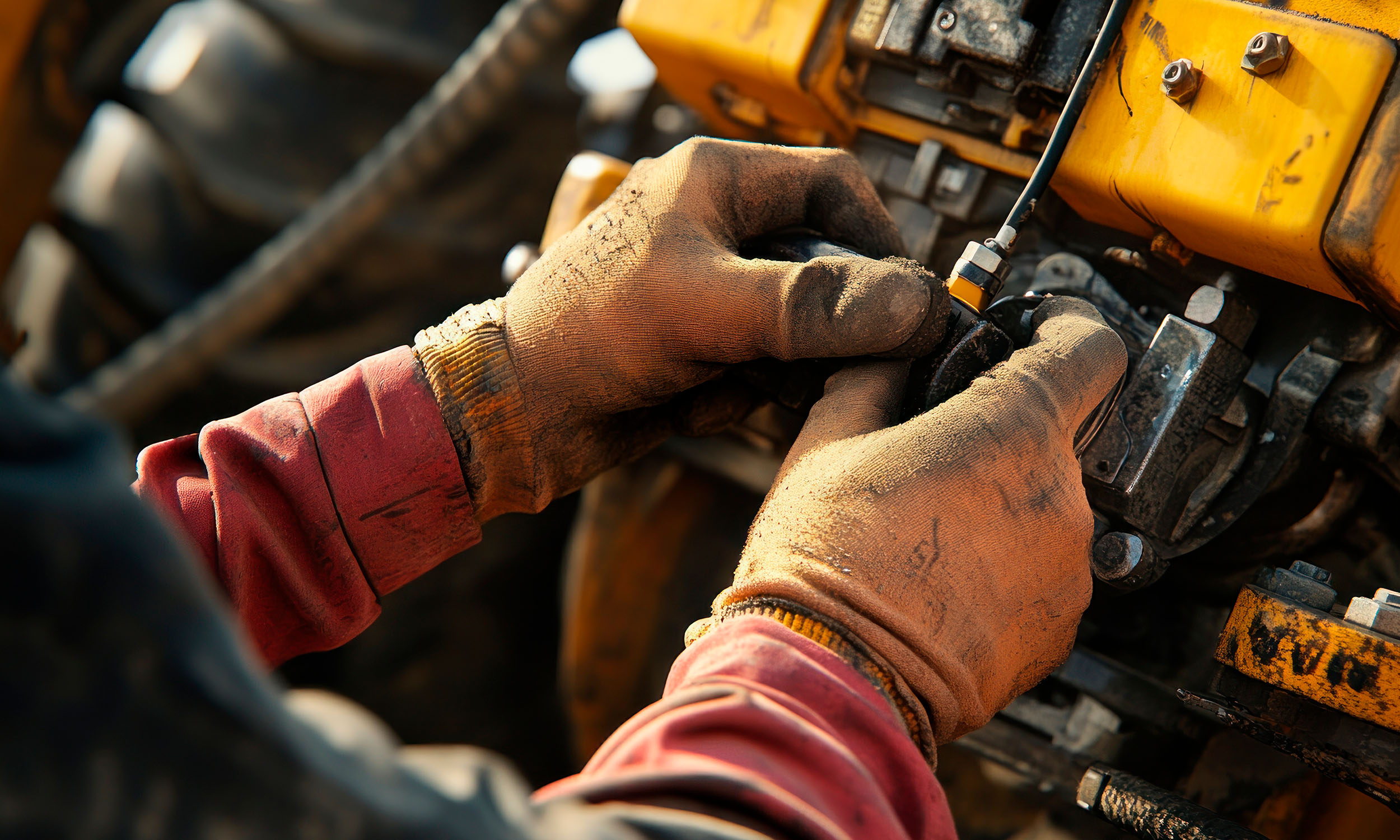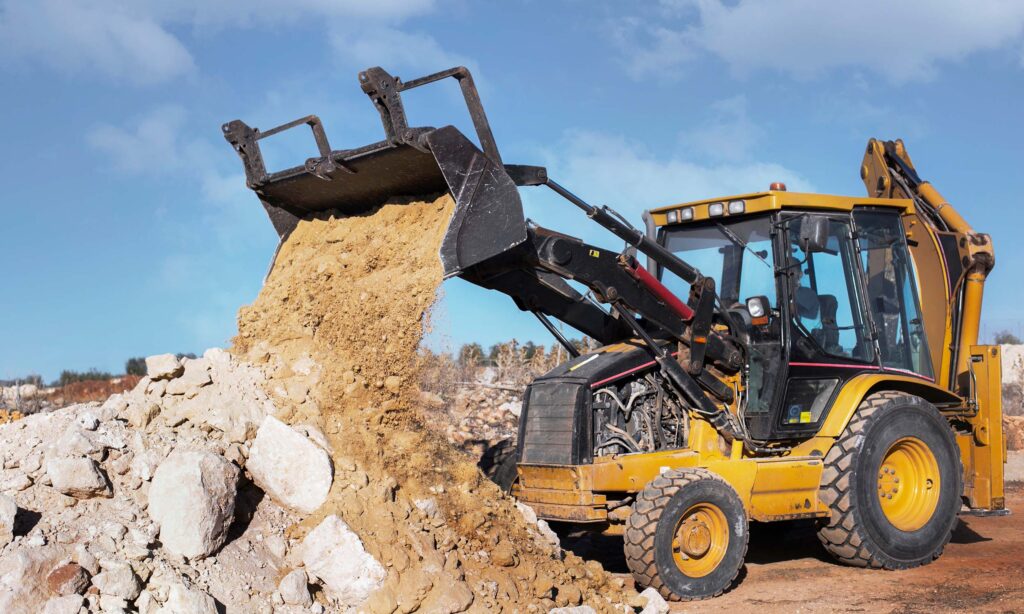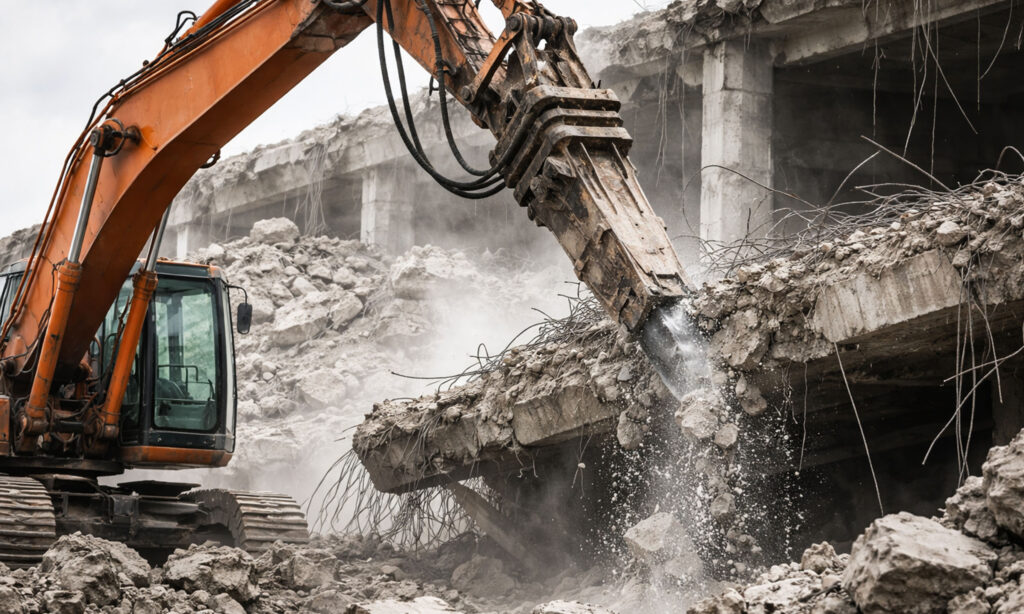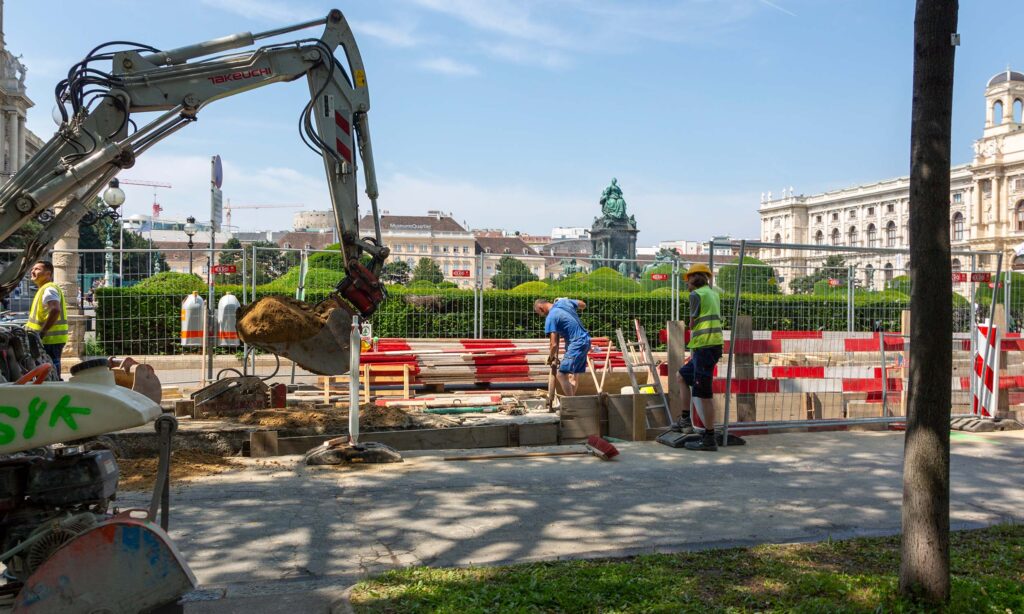Maintaining demolition machinery is key to keeping productivity and safety up on construction sites. Demolition equipment is exposed to extreme conditions: dust, vibrations, heat, and heavy use that speeds up wear and tear. So, having a well-structured maintenance plan helps cut costs, keep things safe, and extend the life of the machinery.
Proper maintenance not only prevents breakdowns, but also improves labor efficiency and maintains equipment performance over time.
In this article, we explain how to implement preventive and predictive maintenance, the importance of automatic lubrication systems, and how the use of high-quality technical greases contributes to a longer service life for demolition machinery.
Why preventive maintenance is essential in demolition
In the demolition sector, heavy machinery maintenance is essential. Hammers, grapples, and shears are exposed to constant wear and tear, so they require ongoing technical supervision.
Efficient maintenance on site extends the service life of each component. It also improves safety and helps meet deadlines without compromising equipment reliability.
Extreme wear and operational risks
Hydraulic hammers operate under harsh and continuous conditions. Without adequate lubrication, moving parts quickly become damaged. Therefore, self-lubrication of hydraulic hammers is essential to maintain constant lubrication at friction points.
At IMOP, we recommend using high-quality hydraulic hammer greases, such as Epiroc, NPK, or Montabert grease, which offer superior resistance to high temperatures and reduce internal friction. This helps to extend the service life of demolition machinery and reduces grease consumption during the working day.
How maintenance affects operator safety
Regular, planned maintenance ensures more stable and safer equipment. Maintenance personnel must perform routine checks of pressure, leaks, and hydraulic oil levels to ensure operator safety and prevent mechanical failures during use.
Types of maintenance applicable to demolition machinery
Technical maintenance is divided into three main types: preventive, predictive, and corrective. Each plays an essential role in industrial maintenance.
Preventive vs. predictive maintenance
Preventive maintenance of this machinery is based on scheduled inspections, planned replacements, and cleaning of systems according to the manufacturer’s recommendations. Predictive maintenance, on the other hand, uses sensors that analyze vibration, pressure, and temperature to detect anomalies before a failure occurs.
Both systems, combined with regular inspections, enable breakdowns to be prevented much more effectively, thereby extending the service life of the machinery.
When to perform visual and technical inspections
Visual inspections should be carried out every day before using the equipment. On the other hand, more thorough periodic checks should be scheduled every few hours or when the working environment is particularly demanding.
Maintenance staff are responsible for recording each check and reporting any incidents so that action can be taken in a timely manner.

Corrective maintenance: how to reduce unplanned downtime
When a component fails, corrective maintenance becomes the immediate solution. Having quality spare parts and experienced maintenance technicians facilitates quick repairs and reduces downtime.
Key technical maintenance procedures
Structured technical maintenance ensures that each machine operates safely and efficiently. The correct application of these procedures guarantees more accurate and longer-lasting work.
Replacement of filters, oils, and hydraulic components
Checking oils and hydraulic filters is one of the cornerstones of effective maintenance. Hydraulic oil must be kept clean and at its optimum level to prevent pressure loss or overheating.
Replacements must be carried out according to the intervals established in the machinery maintenance plan and following the manufacturer’s instructions.
Inspection of hammers, pliers, and shears
Maintenance of hydraulic hammers and inspection of hydraulic shears and clamps must be carried out regularly, in addition to self-lubricating systems, as they ensure that friction points remain lubricated at all times.
At IMOP, we offer automatic lubrication systems compatible with different brands and equipment. Together with the high-performance greases from Epiroc, NPK, or Montabert mentioned above, they prevent premature wear and extend the service life of machinery even in extreme conditions.
Checking the electrical system and hydraulic connections
A detailed hydraulic inspection prevents leaks, pressure drops, or overheating. In addition, the electrical system, sensors, cables, and connectors should be checked to ensure that everything is working properly.
A sealed and clean system ensures efficient maintenance on site and lower long-term maintenance costs.
High-quality spare parts and components for demolition machinery
Spare parts for demolition machinery are a critical part of the maintenance process. Therefore, using original or certified equivalent spare parts ensures compatibility, durability, and good performance.
At IMOP, we offer a wide range of spare parts, greases, and technical oils for the maintenance of hydraulic equipment, hammers, and other implements. Our technicians advise each customer on how to maintain a hydraulic hammer and which high-performance products are best suited to the type of work.
How to plan an efficient maintenance program
A preventive and scheduled maintenance plan for heavy machinery helps keep equipment in perfect condition. This should include periodic inspections, task logging, and digital tracking of interventions.
Recording of interventions and digital monitoring
Digital systems allow you to monitor times, parts used, and upcoming maintenance. This ensures scheduled maintenance that prevents unforeseen events and improves productivity.
Technical team training
Maintenance personnel must receive ongoing training on new lubrication techniques, component replacement, and hydraulic safety.
Industrial maintenance training ensures that each operator correctly applies the maintenance procedures for demolition equipment.
Collaboration with certified suppliers
Working with specialized suppliers, such as ourselves, guarantees the supply of technical greases, certified spare parts, and professional advice. This allows for proper, safe, and cost-effective maintenance at all times.
Regular maintenance is essential for extending the service life of demolition machinery and reducing operating costs.
To ensure consistent performance and safe operation, it is important to follow the manufacturer’s recommendations, lubricate demolition machinery with Epiroc, NPK, or Montabert grease, and keep self-lubricating systems in good condition.
At IMOP, we help companies and professionals implement comprehensive maintenance programs for all types of demolition machinery, with solutions tailored to their technical and operational needs.




